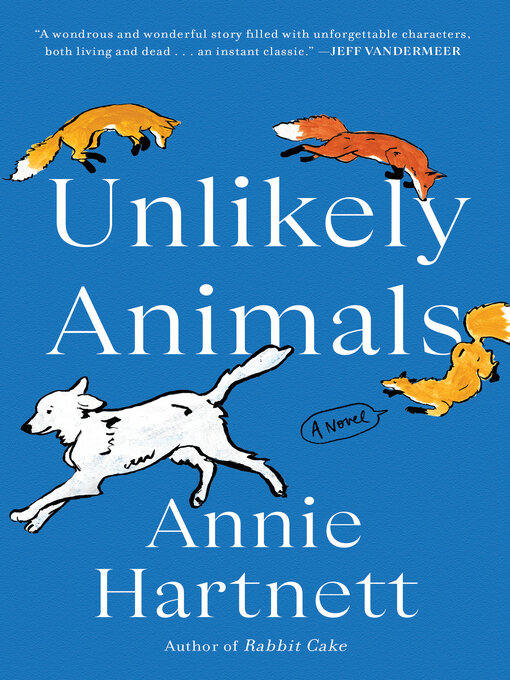
In general, the way that I cope with the world is to try to find the humor in things that are uncomfortable and painful. UNLIKELY ANIMALS takes on a number of really difficult topics-dementia, the opioid crisis, abduction, death-but uses a very light tone overall, was it hard to strike that balance? How did you keep the tone of the book from getting too dark or slipping into farce?

And so the novel contains all my obsessions, and then I wanted them to all tie into a big finish in the end. I’m a big believer in following your obsessions when you write. I was already writing a novel about a family set in modern day, but I couldn’t resist using this gold mine of cool stuff… so I set the novel near the hunting park, and made the naturalist character a ghost. Doolittle who lived with animals in his house. I became obsessed with the place, especially after I learned that the park’s naturalist was a real-life Dr. I googled it, and found out that it was built by a 19th century robber baron and that he’d also built a 26,000-acre exotic animal park… and that the park is still there today. This is a really long story, but I’ll keep it short– but for now, this novel came about when I was traveling in New Hampshire, and I came across this enormous yellow mansion in the middle of a rural area. What inspired you to write UNLIKELY ANIMALS? How did you plan all the different story lines?

Fans of Hartnett’s first novel, RABBIT CAKE, will recognize her particular blend of humor and tragedy that skillfully conveys the bittersweet and complex nature of relationships, especially among family. This funny and intricate novel weaves together the stories of the residents of Everton, New Hampshire, and includes ghosts, the healing touch, a secret compound, and many unlikely animals like wild boar and a Russian fox (but no mountain lions). Annie Hartnett’s second novel, UNLIKELY ANIMALS, is the story of Emma, a med school dropout returning to her small New Hampshire hometown to take care of her father who is suffering from dementia.


 0 kommentar(er)
0 kommentar(er)
